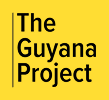Close

Since returning to office in August 2020, the People’s Progressive Party/Civic (PPP/C) administration has faced renewed scrutiny over public procurement practices, with the opposition and civil society raising concerns about transparency, accountability, and value for taxpayer money (Stabroek News, 2023).
A central allegation is the frequent use of sole-sourced contracts, which critics argue undermines competitive bidding and opens the door to inflated pricing. Opposition Members of Parliament have pointed to several multimillion-dollar infrastructure projects awarded without open tendering. These include roadworks, hospital upgrades, and drainage contracts—some of which, they say, were justified under emergency COVID-19 provisions but continued even as pandemic restrictions eased (Kaieteur News, 2022).
One example often cited is the school feeding programme procurement in 2022, where critics claimed that selected suppliers were not subject to rigorous competition. Similarly, in the health sector, the urgent purchase of COVID-19 medical supplies and equipment drew accusations that procurement laws were being bypassed for convenience rather than genuine emergencies. Government officials have defended these decisions as necessary for rapid response, citing global shortages and the urgency of securing essential goods to protect public health (Auditor General of Guyana Report, 2022).
Additionally, reports in local media have highlighted concerns about the cost escalation of road and bridge contracts. Some projects reportedly saw prices revised upward after award, raising questions about the initial estimates and contract management processes. Calls for full disclosure of variations, contractor selection criteria, and payment schedules have been frequent in Parliament debates and editorials (Stabroek News, 2023).
The government has consistently rejected claims of widespread corruption or mismanagement. Senior officials argue that the Public Procurement Commission, Cabinet reviews, and National Procurement and Tender Administration Board procedures remain in place to ensure oversight. They also point to the need to fast-track long-overdue infrastructure projects after years of underinvestment, arguing that delays in competitive bidding could cost the country opportunities for economic growth and development (Kaieteur News, 2023).
Auditor General reports have occasionally flagged procedural weaknesses or non-compliance in ministries and agencies, recommending tighter controls and documentation. However, systemic reform has been slow, and many procurement shortcomings predate the current administration (Auditor General of Guyana Report, 2023).
Civil society groups, including Transparency Institute Guyana Inc., continue to call for greater disclosure of contract details, more use of competitive bidding, and prompt implementation of the long-discussed electronic procurement system. As Guyana’s oil revenues increase and
government budgets expand, many observers warn that without stronger safeguards, the risk of inflated costs and improper awards will only grow (Transparency Institute Guyana Inc., 2023).

The Guyana Project is an independent media platform delivering fact-checked, ground-level reporting on politics, economy, and public life in Guyana. With a focus on transparency and development, we bring unfiltered news and thoughtful analysis to help shape a more informed, forward-looking nation.

Miscellaneous Procurement Concerns in Guyana: Allegations of Sole-Sourced Contracts and Inflated Spending (2020–present)

Lorem Ipsum is simply dummy text of the printing and typesetting industry. Lorem Ipsum has been the industry’s standard dummy text ever since the 1500s, when an unknown printer took a galley of type and scrambled it to make a type specimen book. It has survived not only five centuries, but also the leap into electronic typesetting, remaining essentially unchanged. It was popularised in the 1960s with the release of Letraset sheets containing Lorem Ipsum passages, and more recently with desktop publishing software like Aldus PageMaker including versions of Lorem Ipsum.
t is a long established fact that a reader will be distracted by the readable content of a page when looking at its layout. The point of using Lorem Ipsum is that it has a more-or-less normal distribution of letters, as opposed to using ‘Content here, content here’, making it look like readable English. Many desktop publishing packages and web page editors now use Lorem Ipsum as their default model text, and a search for ‘lorem ipsum’ will uncover many web sites still in their infancy. Various versions have evolved over the years, sometimes by accident, sometimes on purpose (injected humour and the like).
Contrary to popular belief, Lorem Ipsum is not simply random text. It has roots in a piece of classical Latin literature from 45 BC, making it over 2000 years old. Richard McClintock, a Latin professor at Hampden-Sydney College in Virginia, looked up one of the more obscure Latin words, consectetur, from a Lorem Ipsum passage, and going through the cites of the word in classical literature, discovered the undoubtable source. Lorem Ipsum comes from sections 1.10.32 and 1.10.33 of “de Finibus Bonorum et Malorum” (The Extremes of Good and Evil) by Cicero, written in 45 BC. This book is a treatise on the theory of ethics, very popular during the Renaissance. The first line of Lorem Ipsum, “Lorem ipsum dolor sit amet..”, comes from a line in section 1.10.32.